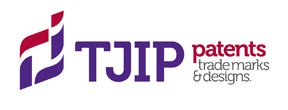- What is a Patent?
- How do I get a Patent?
- Patent costs
- Overseas Patents
- Patent infringement
- Patent searches
Made a great invention? Would other people like to be able to use your invention?
If no action is taken to protect your invention it will be free to be used by others. A patent owner can prevent others from using the patented invention without permission, in the countries where protection is held. Patent owners can therefore get financial gain and a competitive business edge through this monopoly.
There are three stages to getting a patent:
1. File a Patent Application
2. Search & Examination
3. Acceptance & Grant
1. File a Patent Application
Patent applications are filed at the Australian Patent Office IP Australia together with payment of official fees. Patent applications typically include a specification, drawings and “claims” to the monopoly sought. The specification is an important technical document which should be prepared with great care and attention to detail; important information omitted may not usually be added in later. Applications may be for a provisional patent, complete patent, innovation patent or PCT international patent application. For more detailed information please refer to our Workshops page or contact TJ IP™ Patents, Trade Marks & Designs™ intellectual property services for assistance. Overseas Associates should also refer to the Useful Information page.
2. Search & Examination
IP Australia examines the applications to see if the requirements of the Patents Act 1990 have been met, including the key requirements of novelty and inventive step. An international search of published documents is conducted to look for publications of similar inventions that may mean that the invention lacks novelty or inventive step. An examination report may issue if there are any objections to acceptance; submissions and amendments may then be made to attempt to overcome the objections.
3. Acceptance & Grant
If all the requirements of the Patents Act 1990 are met the patent application should be accepted and the details published. Third parties may at this time oppose grant of the application. Once the opposition period has been traversed and the acceptance fees paid the application will proceed to registration and grant. Details of the rights are held on a database at IP Australia .
A patent application usually takes 2-4 years after filing to become a granted patent. The process can be sped up to some extent, if desired.
Patent rights can last 20 years from the filing date, provided all the annual fees are paid.
Individual overseas patent applications can be filed based on the Australian application in the countries of interest. The overseas applications can claim the filing date of the Australian application. Alternatively, a PCT international application can be made which keeps rights in the invention alive in most countries for longer. A PCT application is searched and examined as a single application before the choice need be made as to which countries to pursue the invention. If you would like further information about overseas patents including the PCT please refer to the our Workshops page or contact us.

